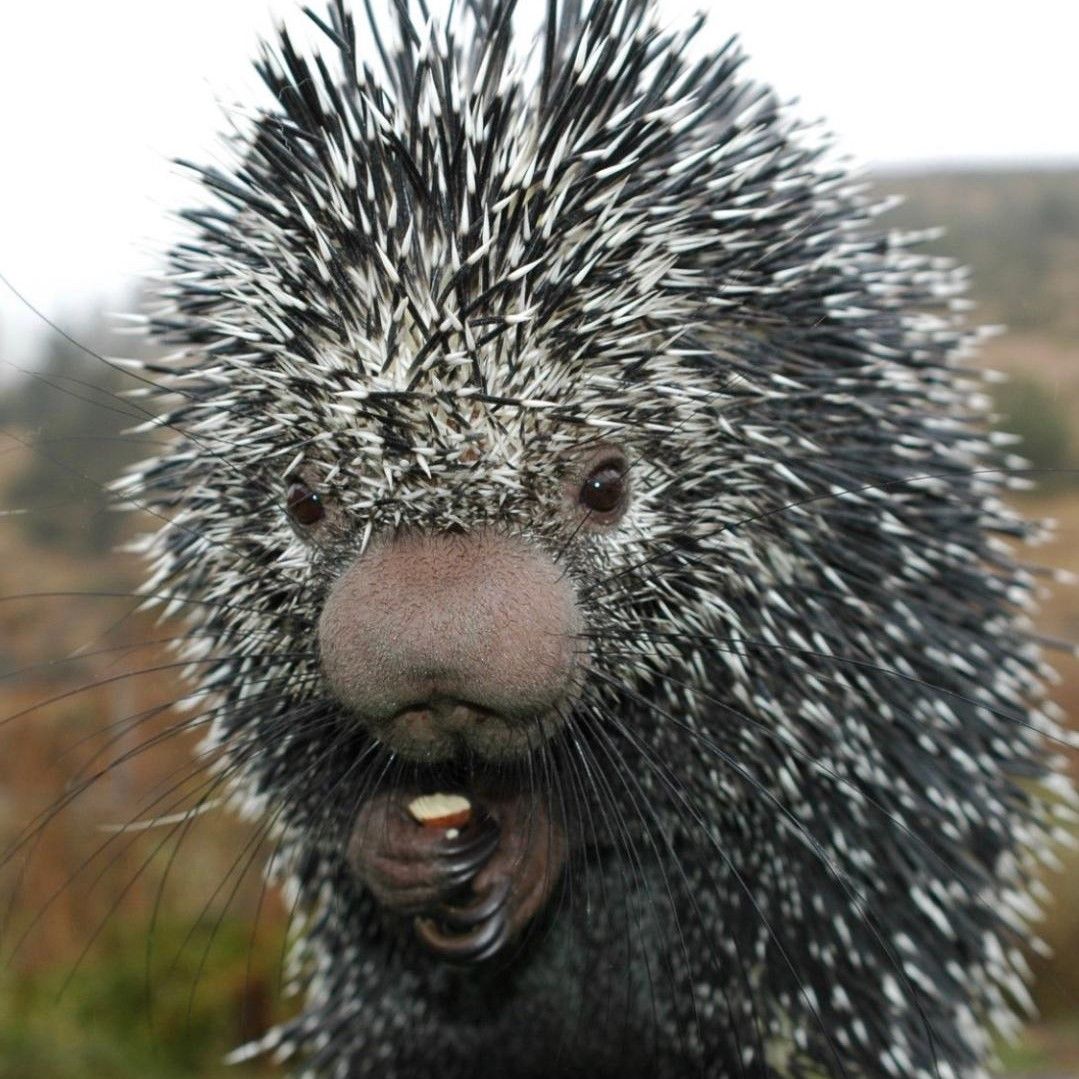Profile | Pig

-
BirthdayMale, born 2008
-
SpeciesCoendou
Coendou prehensilis -
Professor ofRainforest propagation and preservation
-
Field of StudyCanopy and quills
-
Food and Vet Care$298 per month | $3578 each year
About the species
RANGE | These porcupines are found in southern Mexico, most of Central America and parts of South America- such as rainforest habitats in Ecuador, Peru, Venezuela and northern Brazil.
FUN FACTS | The coendou, or prehensile-tailed porcupine, is a small rodent that is native to the rainforests of Central and South America covered by thousands and thousands of quills. Quills are modified hairs made of keratin, like our hair, but significantly hardened. Unlike their furry cousins in the cooler temperatures of North America, their quills are not covered by a thick layer of fur as it is not needed in the tropical regions. Their quills are roughly the length of a toothpick but are barbed so they become embedded in the flesh of the predator.
These nocturnal animals live almost entirely in the canopy of the rainforest where few large predators can venture. These arboreal rodents a wide variety of plant matter—including fruits and seeds as well as buds, bark and leaves. They are herbivores but, since they eat so many kinds of leaves and so much of them, they are also considered a folivore.
Meet Pig
Pig was born in a zoo and when his mother rejected him, the zookeepers stepped up to care for him until they were able to find him a home.
Pig is all about routines. Each morning, when we enter his enclosure to clean, he comes out of his den for his daily massage. He especially loves it when we rub his nose and ears (making sure to be extra careful around all those quills!). If we stop too soon, he throws a tantrum: he pushes paper to the floor, shoves his bowl to the floor and will even stomp his foot and march away!
SPECIAL NEEDS | Pig was quite ill in 2018. Herbivores sometimes develop bezoar stones in their gut since they don’t have gallbladders. In some parts of the world, porcupines are often killed because people believe lore that these stones can offer cure for various ailments and are hoping the animal might have developed one in their stomach. Pig had two large stones that required extensive and expensive surgery and very prolonged recovery. While he seems to be feeling just fine these days, he gets regularly scheduled vet visits to monitor for signs of new developing stones, so that we can address before it leads to another surgery.
Likes
Maya likes to climb, as long as everything is stationary, so we have created a series of wooden ramps and poles to climb but she would certainly appreciate more. Since porcupines are such chewers, she can only have wooden shelves and perches. Wooden cubes and boxes are very intriguing to Maya as well. She likes the enrichment we make by adding nuts and dried berries to wooden tubes and packing paper. She enjoys gnawing on rabbit and rodent chew toys, often made of willow or other non-toxic woods and alfalfa, so we dangle and set them throughout her enclosure so she can forage for them.
Wishlist
-
Natural woodfresh cut, non-sprayed branches from maple, oak, willow, birch, pear, or apple trees
-
Welding glovesOk, we admit it—these are for us!
-
Travel carrierto leave in enclosure for evac training
-
Dog toysSome dog toys are safe to give porcupines—such as the Ho-lee roller toys and heavy duty stuffed toys.